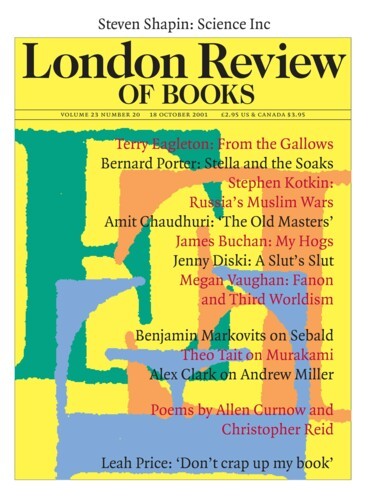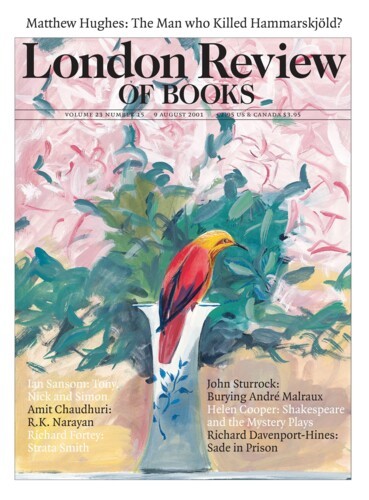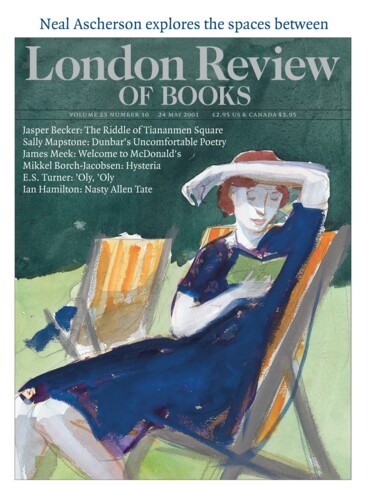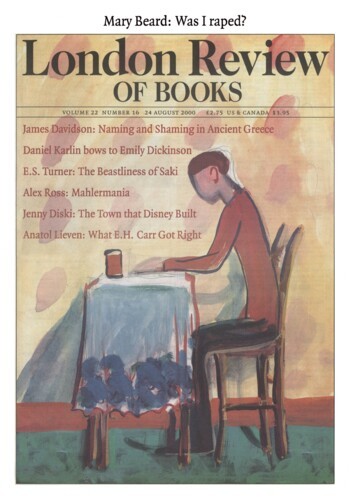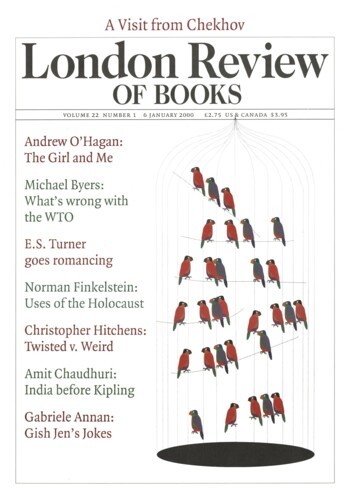Story: ‘The Old Masters’
Amit Chaudhuri, 18 October 2001
He glanced at his watch and made an attempt to finish the tea in his cup; he was waiting for a call, and it was his second cup of tea. Five minutes later, the phone began to ring.
‘Pramathesh?’ said the voice at the other end; and he could tell, from its slight note of insouciance and boredom, that it was Ranjit.
‘I was waiting for your call, old man,’ he said, trying...
